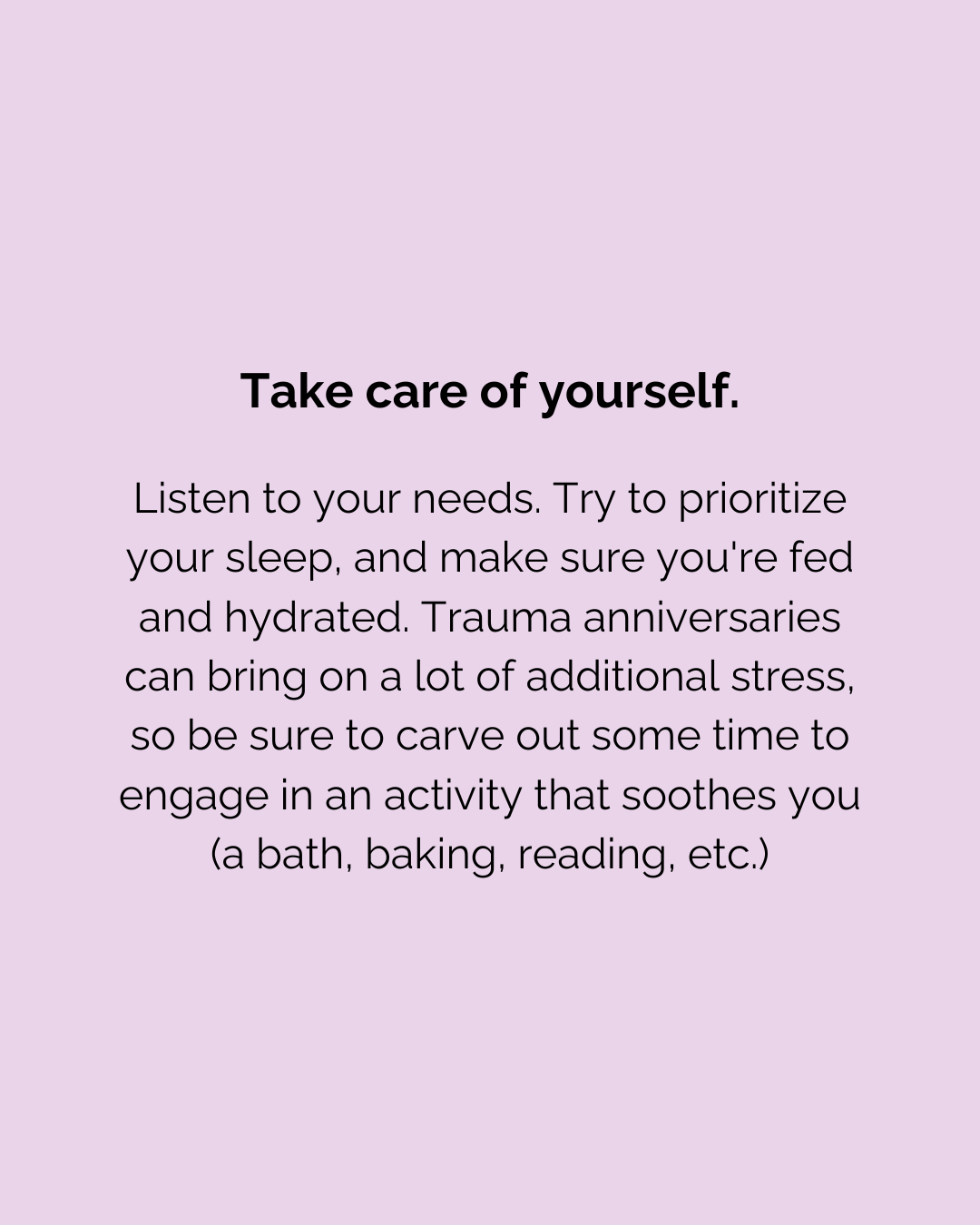Have you ever felt a sudden wave of anxiety or sadness around a certain time of year, without really knowing why?
Did you know this could be due to a Trauma Anniversary?
A trauma anniversary is when the date or time period of a past traumatic event comes back around, and your mind and body remember—sometimes even if you don’t.
This can bring back feelings and reactions like the ones you had during the original trauma.
You might notice these feelings, or they could happen without you realizing it, often leading to more anxiety, stress, and other emotional ups and downs around that time of year .

The truth is, many people go through life without understanding what’s really happening to them. If you think you might be experiencing a trauma anniversary, it’s important to recognize the signs:
Feeling More Anxious Or Stressed: You experience more anxiety or stress than usual, without knowing why.
Vivid Memories or Flashbacks: Reliving the traumatic event through strong memories or flashbacks.
Intense Emotions: Feeling extra sad, angry, or irritable out of nowhere.
Physical Aches and Pains: Getting headaches, stomachaches, or other physical issues due to stress.
Sleep Problems: Having trouble falling asleep, staying asleep, or dealing with nightmares related to the trauma.
Avoiding Reminders: Steering clear of places, people, or activities that bring back memories of the trauma.
It's natural for trauma anniversaries to be upsetting, as they can bring up tough emotions and leave you feeling frustrated as if you’re back to dealing with issues you thought you had overcome.
These sudden feelings of anger or anxiety can also strain your relationships, work, and overall well-being.
But it's important to remember that experiencing these reactions doesn’t mean you’ve lost the progress you’ve made. Ups and downs are a normal part of healing, and it’s common to find things harder during these times.
Some experts believe that trauma anniversaries are our mind's way of trying to protect us by preparing us for similar dangers. However, while our mind might have good intentions, constantly living in fear isn't helpful for our well-being.
So how do you handle trauma anniversaries?
Here’s how:
Acknowledge Your Feelings: It’s okay to feel the way you do. Accept your emotions as a natural response to the anniversary and treat yourself with compassion.
Take Care of Yourself: Do what you need to relax and feel good. If that means taking a day off work or spending time with people who lift you up, go for it. Listen to what your body and mind need, and prioritize your well-being.
Talk About It: Share what you're going through with a friend, family member, a therapist, or journaling.
Have a Plan: Think about how you’ll handle the anniversary. Plan some comforting or distracting activities to help you through it.
Stay Present: Use mindfulness techniques like meditation, deep breathing, or grounding exercises to keep yourself focused on the present moment.
Get Professional Help: If the anniversary feels too overwhelming, don’t hesitate to reach out to a mental health professional.
Avoid Triggers: Be mindful of things that might bring back tough memories, and try to limit your exposure to them.
Commemorate Your Anniversary: Visit a spot that brings you good memories or is meaningful to you. Or plant a tree to bring renewed energy to the world. It may sound counterintuitive, but the goal isn’t to celebrate the date, rather to find a healthy way to honor your experience.
Trauma anniversaries often bring limiting beliefs to the surface, things like feelings of unworthiness, fear, or self-sabotage.
That’s why it’s crucial to stay aware of these beliefs and be intentional with how you respond to them .
If you notice any of these beliefs surfacing, take a moment to question their validity. Ask yourself if they’re truly accurate or just reflections of past fears and experiences.
Look for evidence that disproves them, like the times you’ve shown resilience or overcome obstacles.
And remember, while you can’t change the past, you can help your mind and body recognize that the trauma is over, and you survived. Lean into what you’ve learned and how far you’ve come since then.





